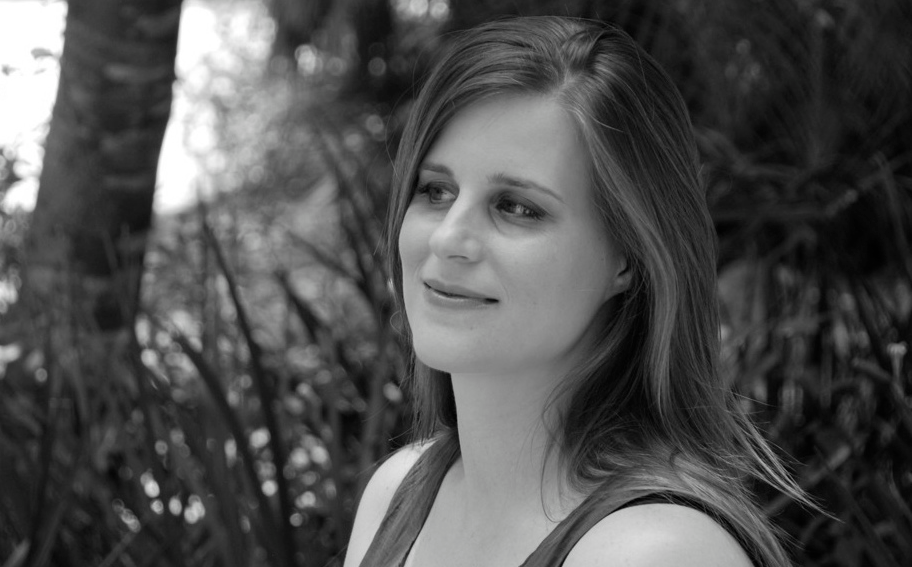Bit and Peace: Lauren Groff’s Arcadia

ABOVE: LAUREN GROFF. PHOTO COURTESY OF SARAH MCKUNE
Lauren Groff is a writer of ambitious, richly felt, and deeply sensitive fiction. The release of her newest novel, Arcadia, has generated positive reviews and high expectations. The novel, which begins on a commune in the late 1960s and continues through generations to come, is largely character-driven, but Groff also relies on the tenets of historical fact while weaving in wisps of fairy tales. Arcadia sits on the cusp of magic realism, and Groff herself is guided by superstition and magical thinking.
Groff told us about her conventional childhood, being creeped out by former communes, the practical use of fairytales, and seeing ghosts everywhere.
CLARE STEIN: Arcadia tells the story of a commune in New York in the late 1960s and follows its protagonist, who grows up there. Did your childhood resemble those environs?
LAUREN GROFF: Not at all. My childhood was as conventional as you could get. I think I probably created Arcadia with a certain amount of wishful thinking. I would have loved to have more looseness and freedom and community. I sat in my studio and dreamt for hours at a time about what my ideal place would be. And that ended up being Arcadia.
STEIN: I have heard people say that your protagonist, Bit, is one of their favorite literary characters, especially in the beginning of the novel, when is character is a child. Did real kids inform that character?
GROFF: Whoever said that, I would like to kiss. I began this book while I was pregnant and while I watched my first child be born and become a unique human being. Bit became a character at the same time that my son became fully a human. I love Bit so much because I wrote my son into him. I am sad that I don’t get to spend all day with Bit anymore. Actually, I grieve a little now.
STEIN: When Bit is a child, he has some hesitation to speak.
GROFF: I thought that was a fascinating way to react to the pressure and tension in the world around him. As a person, I do ascribe to a lot of magical thinking myself. I am very superstitious, and I think this is something that Bit also shares. He thinks, “If I don’t do this, this will happen.” And it is magical in a way. It can help you alleviate a lot of tension in your life.
STEIN: What are you superstitious about?
GROFF: Everything! If there’s a black cat that crosses the street in my path, I will turn around and walk 20 minutes out of my way to not cross it. You know how in New York there’s a lot of scaffolding? I won’t walk under scaffolding or under ladders. I wear things like a baseball player wears things that are supposed to have luck. I am superstitious about everything.
STEIN: Grimm’s fairy tales enter Arcadia—is that tied to your superstitious nature?
GROFF: Absolutely. But I also think that’s tied to a need to create stories—we need the skeletons of other stories to understand our own, sometimes. When Bit finds Grimm’s fairy tale book, it becomes his life vest, in a way. It helps him read the world around him. That’s what stories, and fairy tales especially, do. I just read this article in a UK paper about how appalled people are by Grimm’s fairy tales, how they would never read them to their children, but I think they’re marvelous. They create these worlds of horror that at the same time are containable. You get to the end of the story and it’s almost always happily ever after. People can learn about a certain amount of pain, and it always ends fine in the story. They’re amazing tools for children—I wouldn’t give every story to a child because there are a lot of anti-Semitic and flat out bad stories, but I don’t see the harm in a smart kid reading Grimm’s tales.
STEIN: You have a flair for using history to embroider your fiction. What attracted you to the era when the novel begins, the late 1960s?
GROFF: I see history as really cyclical in terms of the intense idealism, and the desire to create a better life outside of societal norms. In America, possibly because of whatever the American dream is, this happens over and over again. These eras repeat. We ebb out of them and come into them again. I would love to see where we’re going because the Occupy movement surprised me, and I wonder if that is going to bloom into a larger idealistic, active time. I’m watching with a lot of interest.
STEIN: You’re right. There always is some sort of urge to escape and self-isolate. Is Arcadia house a real place?
GROFF: It’s based on two different idealistic communities that were amazingly successful for a long time and then collapsed, basically. The first one was Oneida, in upstate New York, which was phenomenally interesting. They did some tremendously advanced things, but at the same time everyone in the community was married to one another and they also had a horrifying eugenics program. That was the basis of the actual, physical house. I went up and stayed there for one night because it’s now a bed and breakfast. There were only two people staying there, in this huge, enormous, cavernous, ghostly place, and I got pretty scared, and I didn’t sleep a wink.
The other place I stayed was a community called “The Farm” in Tennessee. It was extraordinarily successful for a very long time and then under the weight of all of its needs collapsed. I stayed there for a few days and it was an amazing thing to walk by these 40-year-old buses in the wood and see things growing up through them. People used to live in those buses!
STEIN: The eeriness of staying at Oneida—did that affect the tone of your novel?
GROFF: I see ghosts everywhere, and that is partially a function of my being incredibly near-sighted and reading way too late into the night. I think it was about four years ago when I stayed there, and I got up in the middle of the night, so anxious, so unsettled. There was something happening in the room, some sort of strange energy, and I went for a walk through the hall. I was so creeped out that I went back to my room and started jotting down notes for whatever this project was going to end up being. It definitely had an atmospheric impression on the book.
STEIN: Do you pine for that isolated commune life—that back-to-the-earth mentality—or would you rather be an observer, living your normal life, watching other people have that radical experience?
GROFF: That is such a good question, because—both. There is part of me that longs to have the back-to-the-earth life—make my own bread, grow my own wheat, just be really self-sufficient—but I am not, at the moment, willing to give up the luxury of modern life, and amazing schools for my kids, and things that I’ve come to rely on that are parts of society. So: no and yes, and I guess creating this book was a way to be able to live in an ideal community without having to leave my life as it is now.
ARCADIA IS OUT TODAY.






